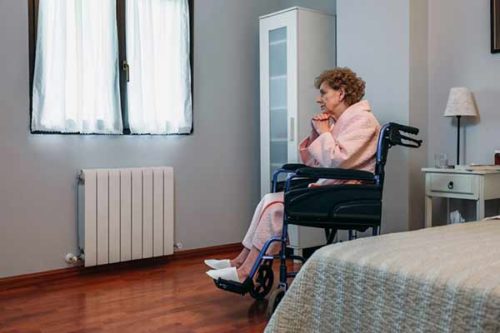
This year’s National Nursing Home Week (NNHW) takes place between May 12 and May 18, and touts a theme that endeavors to recognize residents in long-term and post-acute care settings. That theme is Team Care, and it focuses upon the committed staff members of nursing homes that care for nursing home residents, as well as the value of planning for nursing home care in ways that allow everyone to contribute to an optimal outcome for nursing home residents.
While the theme of NNHW is an appropriate mechanism for recognition of the important work of nursing home staff, it should also be scrutinized in the context of nursing home abuse, a very real threat for residents at nursing homes. Nursing home abuse is a problem that affects nursing home residents all over the country, and is such that nursing home residents may have to consider expanding their “team” to include those well versed in the legalities of nursing homes and elderly care. Such a decision would be wise not only to protect nursing home residents while they are alive, but also to protect their relatives and heirs. A recent series of legal battles highlights the importance of having a member of the “team care” group that is well versed in the legal issues.
In Carter v. SSC Odin Operating Co., the relatives and heirs of a deceased nursing home resident sought to rectify alleged nursing home abuses that contributed to the death of Ms. Joyce Gott while she was a patient at the Odin Healthcare Center. Allegedly, Ms. Gott suffered gastrointestinal bleeding, anemia, and respiratory failure leading to her death, all of which were a direct result of the nursing home’s negligence. In 2005, when Sue Carter admitted Ms. Gott to the Odin Nursing Home, she signed an arbitration agreement as Gott’s legal representative. Consumer arbitration agreements are notorious for creating unfair obligations that require consumers of services to arbitrate on sometimes highly unfavorable terms, without a trial by jury, and resulting in a decision that is basically not appealable to a court of law, state or federal. Thus, in suing Odin for wrongful death and survival claims, Sue Carter sought took the position that the arbitration agreement did not prevent legal claims against Odin in state court.
The Illinois Supreme Court ultimately found that the wrongful death claims were not subject to the arbitration clause that Sue Carter signed, but that the survival claims were subject to that clause and thus would have to be arbitrated. In doing so, the Court highlighted the differences between a wrongful death claim and a survival claim. A wrongful death claim is a claim brought by the representative of the deceased individual as compensation for the pecuniary harm done to the relatives of the deceased. Survival claims, on the other hand, are claims brought for the harm done to the deceased. They are claims that are brought by the deceased’s heirs because the deceased cannot do so. The Illinois Supreme Court reasoned that the survival claims were technically owned by the deceased, and because Sue Carter signed the arbitration agreement acting as the Ms. Gott’s personal representative the survival claim relating to harm done to Ms. Gott was subject to arbitration. The wrongful death claim on the other hand was for harm done to Ms. Gott’s family, and since no one in that family signed an arbitration agreement on their own behalf, it did not apply to claims brought for their own harm. On April 22, 2013, the U.S. Supreme Court refused to hear the case on appeal.
This case involved complicated issues relating to the interplay between the federal arbitration laws and the state nursing home laws and contract law, and ultimately had very serious implications for those involved. In celebrating National Nursing Home Week, elderly persons and their relatives would be wise to consult a legal professional, and consider adding that person to their “team care” plan.